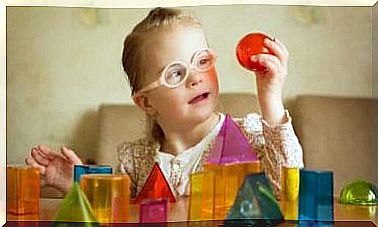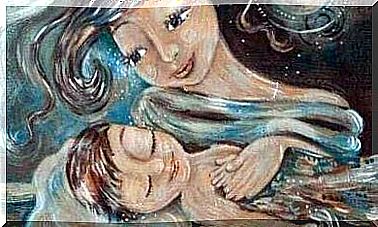Peter Pan Syndrome, When Children Refuse To Grow Up – Being Parents

Have you ever heard of Peter Pan Syndrome? It is a term used to refer to an individual’s tendency to delay the end of parental care and to avoid assuming responsibilities related to their age group.
Concretely, this syndrome is not considered as a psychological pathology. It is more of what one would call a behavioral disorder. Peter Pan syndrome can develop consciously or not. In any case, those who are victims exhibit selfish, inattentive behavior focused solely on their own well-being.
The term “Peter Pan Syndrome” was first used by the American psychologist Dan Kiley sen 1983. Indeed, he presented the concept in 1983 in his book The Peter Pan Syndrome: Men Who Have Never Grown Up .
Why Peter Pan?
Peter Pan is a fictional character created by James Matthew Berrie. He was a 10 year old child who did not wish to grow up because he particularly hated the adult world. With his sidekick the Tinker Bell, he lived many adventures in Neverland.
As we explained earlier, Peter Pan syndrome is not a disease of the mind but rather a very specific form of behavior. When studying fixation, Sigmund Freud discovered very similar symptoms which prevented humans from evolving normally.
This syndrome is more common in boys. An example of a case with worldwide repercussions was the Peter Pan syndrome of the famous singer Michael Jackson. Those who diagnosed the singer with the symptom claimed that he exhibited egocentric and narcissistic behavior. He also had an inordinate passion for Disney characters.
Moreover, Jackson himself publicly affirmed that he felt “Peter Pan in the heart”. He also made music videos around the theme of this famous story. This is particularly the case in his song Childhood.

How to detect Peter Pan syndrome?
People who suffer from Peter Pan syndrome have very specific characteristics:
- Lack of maturity: they behave in a responsible manner, do not meet their obligations and are not able to commit.
- Infant behavior: their centers of interest are specific to childhood. They tend to be entertained in the same way as children.
- Rebellion: since they are not responsible, they are used to going above the rules and living in constant search for personal benefit.
- Almost no social relations: generally, these individuals lack empathy which prevents them from building relationships with their loved ones.
We can also add a reality to the last point mentioned: adults with Peter Pan syndrome are often afraid of rejection and loneliness. They fear they will not be accepted and feel misunderstood. For this reason, they make little effort to build relationships with others.
This approach can have totally counterproductive effects. By withdrawing, these people can end up isolating themselves and appearing cold. Therefore, they do not get the affection they need.
Their behavior may actually be associated with deeper symptoms such as:
- Anguish
- The Depression,
- Low self-esteem,
- The anxiety attacks.
“This syndrome is not considered a psychological pathology. It is more of what one would call a behavioral disorder. ”
What is the origin of this syndrome and how to treat it?
An education marked by a very marked over-protection can be a possible origin of the Peter Pan syndrome. This can cause an overly intense feeling of dependence on parents which will prevent the individual from overcoming the separation phase when it arises.
This syndrome can also be the result of an unhappy childhood. In this case, and as paradoxical as it may seem, the childhood lived remains idealized in the mind of the individual.
The opposite extreme is also possible. A childhood marked by too many lacks can also allow the development of this intention to enjoy this stage of life for as long as possible.
Professionals say that certain personality traits unique to each individual also contribute to the development of this syndrome. In this case, we are talking about the maintenance of the syndrome rather than its origin.
For parents or relatives, it will be almost impossible to treat the individual in question on their own. There are many who are in denial and who do not accept these inappropriate behaviors or this lack of acceptance. This type of reality considerably complicates the possibilities of treatment.
The most recommended option is therefore to resort to a professional. Generally, the mechanisms used to treat this infantile behavior resemble those used to treat forms of neurosis.

Can we avoid this syndrome?
The educational style adopted by parents is closely linked to the prevention of this behavior. From an early age, it is important that children take responsibility and face challenges themselves.
Parents don’t have to solve everything. They must provide the necessary support to the child to learn to resolve the situations that arise. In this way, they will promote the mental maturation associated with this stage of life. The key is therefore to proportionally combine “supervision” with “freedom and autonomy”.









